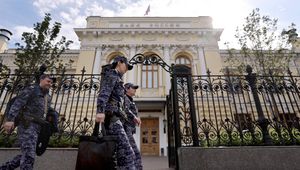International tensions escalated recently as Sweden sought assistance from China following the damaging of two undersea data cables situated in the Baltic Sea. This incident, which is suspected to be sabotage, occurred around mid-November and has prompted inquiries from multiple nations including Germany, Poland, and Finland. The Swedish Prime Minister, Ulf Kristersson, announced the request for China's cooperation urging the return of the Chinese bulk carrier, Yi Peng 3, for investigation.
The cables, connective lifelines between Finland, Germany, Sweden, and Lithuania, were reported damaged just as the Yi Peng 3 was traced to the area based on marine tracking data. Kristersson was clear about the links with the vessel, currently stationed close to Denmark, implying the necessity of its return for questioning. This incident falls under scrutiny as it aligns with the increasing concerns among European countries over possible acts of sabotage against their infrastructures.
The German Defense Minister, Boris Pistorius, noted the likelihood of sabotage as they continue to investigate the underlying circumstances of the cables’ damage. Kristersson echoed calls for the Yi Peng 3 to be moved to Swedish waters to facilitate thorough investigations. On the other hand, China's foreign ministry expressed awareness of the inquiries and maintained open channels for communication with Sweden.
Details from the investigation suggest the Yi Peng 3 may have inadvertently caused the damage when it dropped its anchor and dragged it across the seabed, severing the cables. Reports revealed the vessel was loaded with Russian fertilizer at the time, raising suspicions of intentional actions possibly linked to Russian interests. This narrative of inferring sabotage has been bolstered by international officials who indicated the potential for Russian intelligence influence over the ship's activities.
Further complicity arises from satellite data showing the Yi Peng 3 had its transponder off during the period when the damage was reported. This has led some investigators to suggest the likelihood of skilled manipulation or oversight. Following the incident, Danish Navy ships were later involved to halt the vessel, which had zigzagged its way onward from the affected area after the damage was inflicted.
Investigation reports have underscored the congruence of the vessel's mechanical damage with the scenarios typical of dragging anchors. The company owning the Yi Peng 3, Ningbo Yipeng Shipping, is reported to have cooperated with the inquiries, even as allegations about Russian involvement continue to circulate.
These developments hint at broader patterns where Russia is suspected of orchestrated attacks against European infrastructure, with the Yi Peng 3's incident weaving itself within this complex narrative. Observers suggested the sequence of incidents reflects operational tactics and strategic maneuvers being employed, highlighting the urgent need for enhanced maritime security protocols.
Both Sweden and Germany are advancing investigations as they navigate the diplomatic waters of intervention with respect to the Yi Peng 3. There’s considerable concern about the implications of this incident for existing relations with China and Russia—nations whose interests often collide. China has reaffirmed its commitment to safeguarding international submarine cables but faces pressures as the fallout from the investigation intensifies.
At the heart of these inquiries lies the unsettling reality of modern dependencies on subsea data cables, components integral to global connectivity. Such incidents not only threaten technical infrastructures but also bear heavy consequences for international relations—potentially amplifying adversarial dynamics already simmering beneath geopolitical surfaces.
With nations prioritizing solid evidence and international cooperation, how these investigations conclude could set significant precedents for maritime law and international security amid growing concerns of espionage and sabotage on global platforms. This is certainly one situation to keep watching as it unravels on the world stage.



